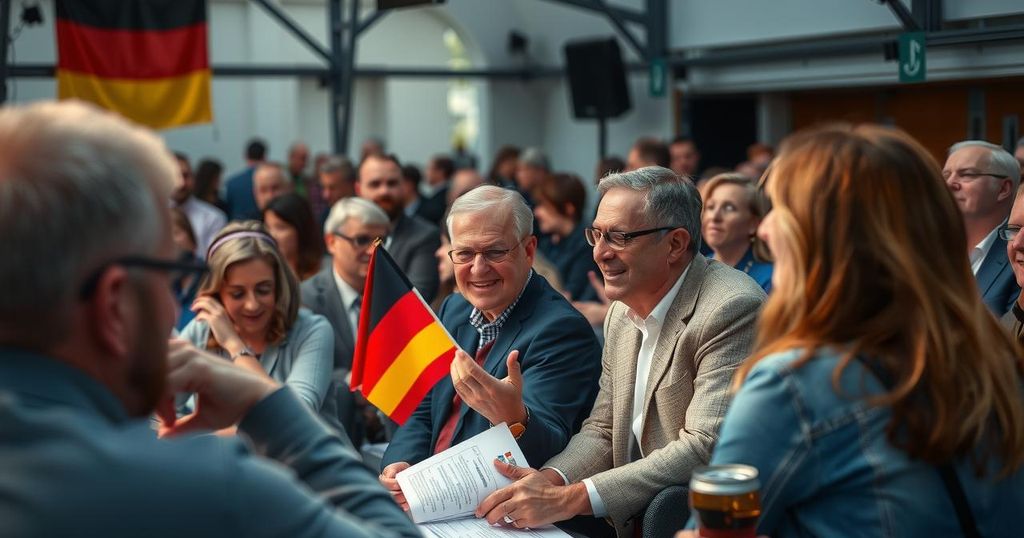Olaf Scholz and SPD Face Critical Election Challenges in 2025

Chancellor Olaf Scholz has been confirmed as the SPD candidate for the upcoming parliamentary elections following a no-confidence vote that led to a swift electoral process. Current polls show significant public dissatisfaction with his leadership. The SPD’s proposed policies preferentially support economic equity and sustainable investment, while Scholz emphasizes the importance of maintaining democratic values during his campaign.
Chancellor Olaf Scholz has been officially endorsed as the leading candidate of the Social Democratic Party (SPD) for Germany’s impending parliamentary elections during a recent party conference in Berlin. The backdrop to this has been a significant decline in support for the coalition government, comprising the SPD, the Greens, and the neoliberal Free Democrats (FDP), following a vote of no confidence that triggered a snap election scheduled for February 23. Amidst this turmoil, a poll indicates that 77% of Germans express dissatisfaction with Scholz’s governance.
Despite these challenges, Scholz appeared resolute at the conference, asserting his commitment to fighting for the SPD’s position in the elections and emphasizing that the political landscape remains dynamic. He addressed the potential impact of Donald Trump’s presidency and asserted the importance of upholding Western democratic values while ensuring Germany’s role in global politics remains steadfast and principled.
The SPD aims to mobilize the electorate, particularly nonvoters, by promoting an agenda that focuses on increased investment in infrastructure, a robust welfare state, and equitable taxation policies that target the wealthy. The proposed initiatives, encapsulated in their program “More for you. Better for Germany,” include the establishment of the “Germany Fund,” which aims to boost investments in essential services and climate-conscious initiatives.
As the election date approaches, Scholz warns of the ramifications of poor electoral choices, stressing the need for Germany to remain a welcoming nation for immigrants while navigating the intricacies of an evolving global landscape. His remarks highlight the necessity for sustainable economic strategies that cater to the populace’s needs while avoiding fiscal discrepancies that could arise from competing political agendas.
The article discusses the political landscape in Germany as Olaf Scholz prepares for the snap parliamentary elections. The ruling coalition’s recent failure and public dissatisfaction pose significant challenges for the SPD and reflect a critical moment in German politics. The SPD seeks to reclaim voter trust through an ambitious agenda centered around social equity, sustainable investment, and a commitment to international democratic principles, particularly in light of potential shifts in U.S. foreign policy following Donald Trump’s inauguration.
In summary, Olaf Scholz’s candidacy for the SPD in the upcoming elections epitomizes a critical juncture for Germany, marked by significant public discontent and geopolitical uncertainties. The SPD’s ambitious proposals aim to address the immediate needs of the electorate while preserving democratic values amidst rising tensions both domestically and internationally. The outcome of the elections will have profound implications for Germany’s future direction, as highlighted by Scholz’s emphatic stance on key socio-economic issues.
Original Source: www.dw.com








